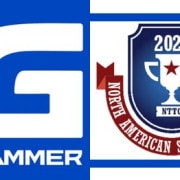Negotiating Trucking Insurance Rates: 5 Questions to Ask
5 Questions to Ask When Negotiating Trucking Insurance Rates
Negotiating trucking insurance rates can seem daunting. Running a growing trucking company is expensive, and those insurance costs make up a sizeable part of those expenses.
While you want to be careful about too much shopping around, you also want to make sure you get the best rates for your needs. To make this happen, it’s important to know what to expect when it’s time to start negotiations.
You need to go in fully prepared, so you have enough information to make an informed decision. This preparation starts with asking yourself five questions that will help you determine what to bring to the table. Armed with the answers to these questions, you will reduce the stress of negotiations.
What Do Insurers Look At?
Trucking insurance rates continue to rise 20% to 25% each year. This rising cost includes increases in deductibles. Increased percentages don’t mean you can’t negotiate prices though.
Before you get started, you want to keep in mind the data that can help or hurt you. Insurance agents look at several records:
- How long you’ve had operating authority
- Driving records for all drivers (this can include personal driving records)
- DOT safety records
- Safety features and programs in place
- Previous insurance claims
It’s important to make sure all your records are up-to-date and easily accessed. You want to make sure you have drivers with clean driving records. It also helps if they have at least two years driving experience, as this can lower rates.
What Type of Insurance Do You Need?
Insurance rates will vary based on fleet size, safety records, and age of the business. Deductibles also affect the insurance price. You can opt for a higher deductible for a lower premium, but this means a higher upfront cost if an accident happens. By taking on this greater risk for yourself, you can show insurance companies that you stand behind your company’s safety record.
The basic insurance needs remain the same for all companies though. Trucking insurance rates are based on four basic areas of coverage:
- General liability
- Auto liability
- Auto physical damage
- Motor truck cargo
Auto liability covers damage to property during an accident, while physical damage covers repairs to your equipment. General liability takes care of non-driving claims. Motor truck cargo covers the cost of any freight that gets lost or damaged.
It is best if you work with a specialist who can help you determine any further insurance needs for your company. A specialist can also help you determine the best rates offered to meet those needs. Remember, cheapest isn’t always the best route to go. Sometimes it can cost more in the long run.
Is Your Documentation in Order?
When negotiating trucking insurance rates, you will need to show your insurance history. This means you will need at least three years of loss runs for all coverage areas. The loss run shows types, frequencies, and amounts paid for previous claims.
You also need a complete list of all operators. This includes name, date of birth, driver’s license number, state of the license, hiring date, and years of experience for each. You’ll want this information for anyone who operates trucks or other licensed equipment.
Insurers will want a list of all equipment in use and the values of each. The type, amount, and value of freight hauled will also come in handy when negotiating rates. Make sure you include mileage on the trucks by state for the previous 12 months.
What Does Your Safety Record Look Like?
Insuring trucking companies can be risky. Insurers look hard at your safety record to determine whether you’re worth that risk. A bad safety record could leave you with higher rates, or without insurance at all.
You need to prove that you are taking every precaution to keep your drivers safe on the road. One bad driver can ruin that for you. That’s why it is important to maintain training records.
Your training records should include basic safety training before drivers ever hit the road for you. You also want re-training options set up to address incidents. These training options help create a safety record that increases your negotiation power.
Your safety record includes CSA scores, previous and ongoing claims, and steps taken to deal with incidents. You want to show continued strides towards improving your safety and maintenance measures.
What Steps Can You Take to Improve Negotiations?
Thanks to increased nuclear verdicts, trucking insurance rates continue to go up to offset the losses to insurance companies. It can feel like all your money goes to paying large premiums instead of growing your company.
Before you enter negotiations, you want to make sure you have everything in order, and you’ve done everything you can to improve your records. Putting good safety tools in place such as cameras and other safety tracking methods shows that you are working to reduce issues on the road.
You also want to show all training certification for drivers. This is especially helpful if you can show steps taken to deal with incidents that occur. Providing proof that your training protocol addresses issues right away will show you are serious about reducing accidents.
Before you gather your records, make sure everything is correct. Check CSA scores and make sure you don’t have misinformation counting against your safety record. Get all incorrect information fixed before negotiating your trucking insurance rates.
Increase Safety, Reduce the Stress
Safety is your front line to protect your company and maintain growth. From retaining good drivers to negotiating trucking insurance rates, proper safety training is the key to your success.
Do you have the tools you need to keep business running smoothly? The first step is training solutions that will grow with you.
Request a free demo of Trucking 52’s safety solutions for growing trucking companies. This is an easy-to-use platform that has been reviewed by the top insurance and trucking industry experts to provide training that will stand up to scrutiny.











